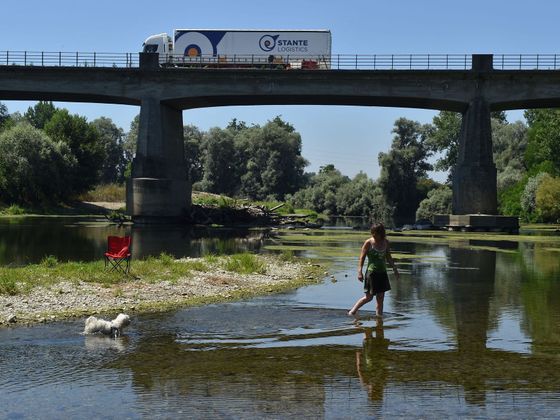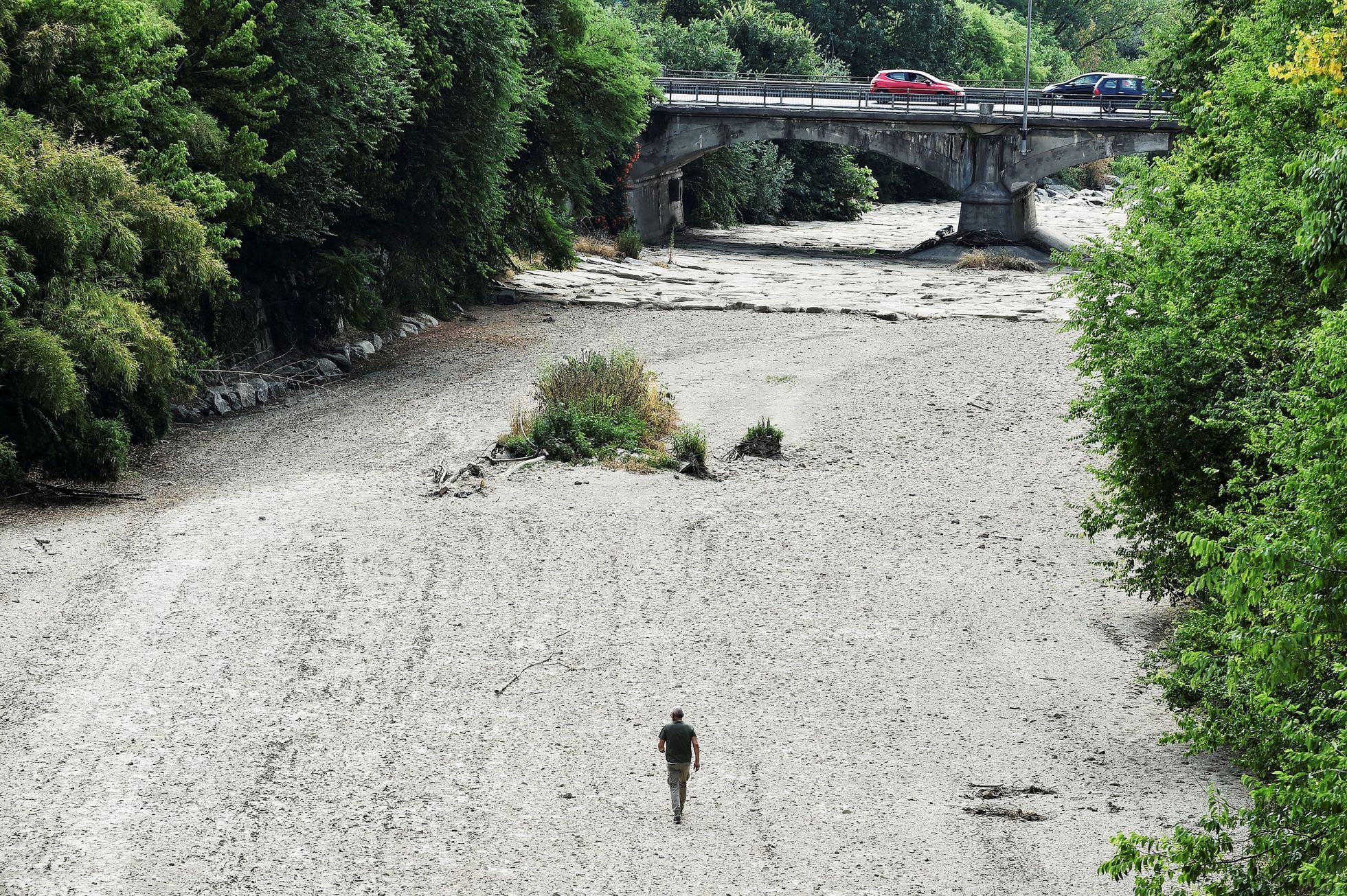Farmer Roberto Guerrini is already the fourth generation to grow arborio rice suitable for risotto in the Po basin, Italy’s longest river. However, he is not pleased with the rice field scene this year – the fertile region of the country is facing its worst drought in 70 years.
The winter months are already relatively dry and the summer is predicted to be similar. Therefore, Guerrini planted less rice than usual. Other farmers grow nothing in some fields, others reduce irrigation intensity with the arrival of heat.
Drought in the north Italy affected, eventually causing even the longest Po river to dry up in places. Near the town of Ferrara, near the sea estuary, the water flow dropped from the traditional 1805 cubic meters per second to 145 cubic meters, British newspapers reported. Guard.
The lower levels of the river even reveal shipwrecks that sank during the Second World War.
The drying up Po River in Italy reveals a World War II shipwreck. | Photo: Reuters
“Water management is 80 percent of rice cultivation. If you don’t get it right, you will lose your crops,” explained the Guerrini farmer. At the same time, Italy is the largest rice producer in the European Union – 52 percent of this crop is grown here, according to American newspapers. New York Time.
But rice isn’t the only crop that depends on an adequate supply of water. Growers of tomatoes, olives, apricots, peaches and pears also complain of drought. “We can already see that some of the olive trees are not fruiting, which only happens when the soil moisture is very low,” he explained Guard economist Kyle Holland. The drought has worsened agricultural production in about half of the river basin’s farms, according to agriculture union Coldiretti.
In addition, high temperatures cause plants to ripen earlier. As a result, the rice wilts more and soon the plants are attacked by the fungus, Guerrini said. Tomatoes also ripen early.
Therefore, suppliers will have to look for plants elsewhere, explains Jason Bull of a company that distributes rice and tomatoes from Italy. “I don’t think we will get enough from Italy, and what we get will be very expensive,” he predicted. Thus, local farmers could lose up to three billion euros (73 billion crowns).
The result will also be higher prices for Italian goods in stores – for arborio rice, tomatoes and their products, the increase can be as much as 50 percent, for olive oil 30 percent. However, oil prices also rose due to Russia’s invasion of Ukraine, which is a large producer of sunflower oil.
Restrictions will also affect households
In early July, Italy declared a state of emergency in parts of its territory due to drought. Accordingly, various restrictions were enforced in the five regions – water was rationed, taps did not run at all at night, garden hoses were not allowed to run during the day, and hairdressers were prevented from washing their hair twice to save the day. while rinsing the head. You won’t even find water in the fountains or ponds in this area.

Italy’s Po River is drying up. | Photo: Reuters
There are more reasons. In spring, rainfall decreases due to climate change, temperatures generally increase, and the Alps also lose snow, which fills rivers with water every year as it melts. “This year we had a situation where three elements came together at the same time, which caused extreme drought,” said Italian climatologist Massimiliano Pasqui.
In addition, local farmers are not very used to drought – in the last twenty years they have had to deal with it “only” six times. Therefore, they lack the irrigation systems that, for example, their counterparts from the south of the country have.
“I have been saying for years that we must accelerate our adaptation to climate change, which we can no longer ignore,” believes Meuccio Berselli of the Po Basin Authority.

“Certified bacon geek. Evil social media fanatic. Music practitioner. Communicator.”







